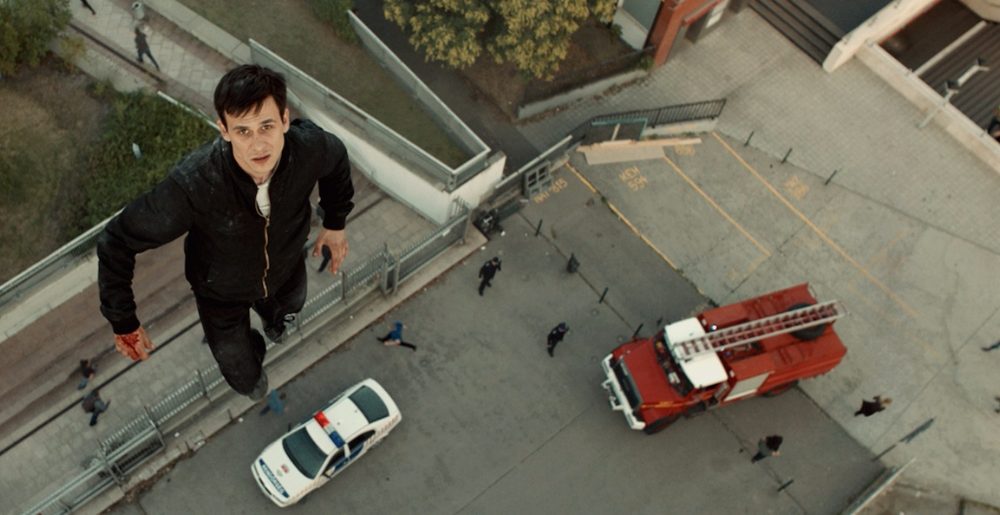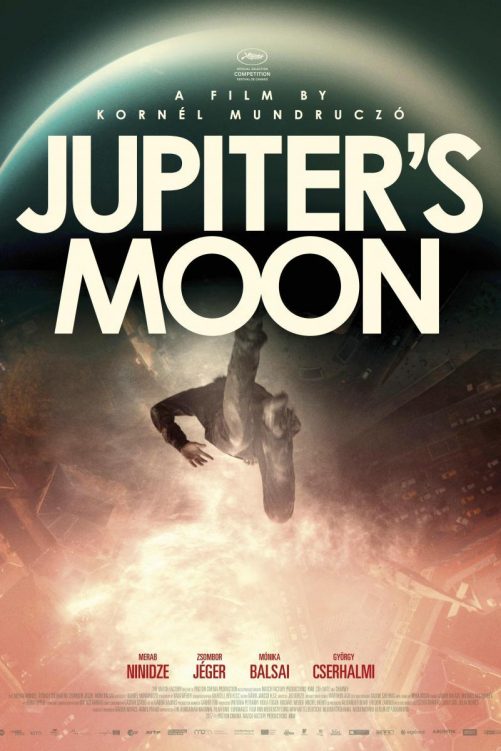Jupiter’s Moon

What if a modern-day Messiah sought refuge in Europe, now that the refugee crisis has intensified people’s mistrust of immigrants? Director Kornél Mundruczó seems to pose this very question as he relates the story of a Syrian refugee, Aryan, shot thrice as he attempts to cross the Hungarian border. The young man’s wounds magically heal and he inexplicably floats in the air. While Aryan is no prophet, the man who discovers his superpower, Dr Stern, refers to him as an angel come to bring a message, and the boy’s Middle-Eastern background, coupled with the fact that his father is a carpenter, inevitably rings biblical bells.
The story sees Dr Stern initially try to make money with the young man’s special skill by taking him to dying patients. Aryan’s only goal is to be reunited with his father whom he lost when the police ambushed the boats on which they entered the country illegally. Dr Stern’s interest in Aryan gradually becomes a genuine care for the boy’s well-being, but a whole community seems to be against them as they fight for survival.
Overambitious in every way, Jupiter’s Moon is not without potential, but it ends up eclipsing its own best features by trying to cover too much ground. Religion, immigration, miracles, alienation, terrorism, father-son relationships, racism, ethical questions in a medical context, and more, are put on the plate and lost in the chaos. There are also car chases, cat-and-mouse games and impressive shots of the protagonist’s aerial tricks that keep the thrills alive, even if they do overburden the content further.
It is unfortunate that Mundruczó chooses to include a subplot that sees Aryan’s father involved in a terrorist plot. The episode contributes very little to the already theme-heavy story, and the choice goes against the otherwise apparent desire to challenge the Western view of refugees. In fact, the story loses power as more and more weighty topics are crammed in, and the film would have certainly been more effective without the inclusion of some banal stereotypes.
The redeeming factor is without a doubt the cinematography. Every shot demonstrates the enormous effort invested into keeping things visually interesting, and this attention to the composition and flow of every scene does pay off, as it elevates the film when the storytelling is unconvincing. The characters are brought to life with skill by the actors, but they are let down by the writing, which makes it too obvious that they are merely playing out a metaphor.
Jupiter’s Moon misses the mark in many respects but it is overall interesting in its approach and visually intriguing throughout.
Mersa Auda
Jupiter’s Moon is released nationwide on 5th January 2018.
Watch the trailer for Jupiter’s Moon here:


























Facebook
Twitter
Instagram
YouTube
RSS